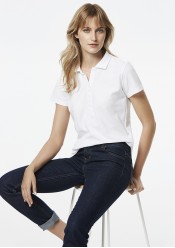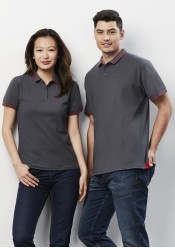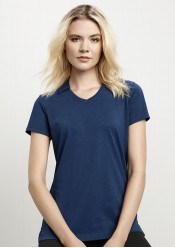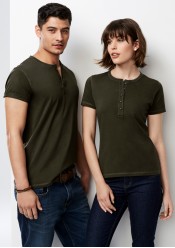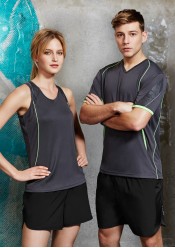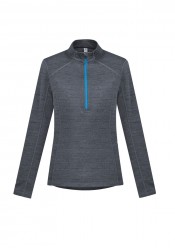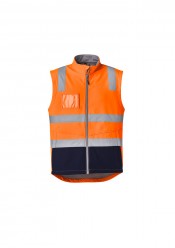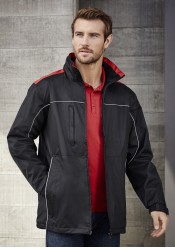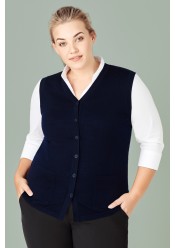Polyester vs Poly Cotton vs Cotton: Which Fabric To Use When and What Is the Difference?
-1366x629.png)
New Zealand’s climate is naturally variable and is often described as “predictably unpredictable.Kiwis start to experience warmer temperatures in spring accompanied with rainfall. It is a perfect time for outdoor activities like hiking and trekking. The days are warm and nights are comfortably cool. With summers around the corner, it is best to be SunSmart to avoid discomfort. The easiest way to do that is wear the right fabric at the right time. With a multitude of options available in the market, one can sometimes have a hard time in picking the right fabric. With this blog, we aim to shed some light on the most popular fabrics for spring and summer seasons in New Zealand- Cotton, Poly Cotton and Polyester. All three clothing fabrics have their unique characteristics, advantages and disadvantages. They cater to different needs and preferences. So let’s know more about poly cotton vs cotton vs polyester!
Cotton fabric is organic in nature and is derived from the fibers surrounding the seeds of cotton plants. It is sought-after owing to its breathability, softness, and comfort.
Advantages of cotton-
It is softer to the touch.
Recyclable
Breathable fabric, so great for summer garments.
Gentle on the skin
Non- clingy
Dyeable
Good colour retention
Easily customised
Eco-friendly
Disadvantages of cotton-
Slightly heavier
Prone to shrinkage and stains
Wrinkles easily
Takes longer to dry
Poly Cotton
Polycotton fabric is a blend of polyester and cotton fibres. It is a very popular choice as it combines the best qualities of both fabrics. Polyester, a synthetic material, is known for its durability and resistance to wrinkles and shrinkage. Cotton, on the other hand, is a natural fibre that is highly breathable and comfortable. Polycotton fabrics offer the best of both worlds and offer more durability and colour retention. It is also way more resistant to wear and tear.
Advantages Of Poly Cotton-
Polycotton is soft to touch while having a crisp texture
Cheaper than cotton
It creases less and minimal ironing is required
Fit better
Retains shape better
Moisture wicking fabric
Lightweigt fabric for summers
No shrinkage when washed
Quick to dry
Disadvantages Of Poly Cotton-
Not as breathable as cotton
Heavier material as compared to 100% polyester fabric
Clingy
Polyester ( Dri-wear fabric)
Polyester is a man-made fiber that is synthesized from petroleum-based products. It has become an increasingly popular choice in the apparel industry. withstands a lot of wearing and washing.
Advantages of Polyester Fabric
Withstands a lot of wearing and washing.
Most effectively employed when applying a vibrant colored design through printing
Affordable
Does not wrinkle or shrink
Lightweight when compared to poly-cotton blends
Super quick to dry
Disadvantages of Polyester Fabric
Slightly more expensive
Not as soft as poly cotton
Very clingy
Can irritate sensitive skin
Not eco-friendly
T- shirts and Polos are most worn garments during spring and summer and here are few factors to consider when deciding on what T-shirt fabric to choose:
The qualities you’re looking for (softness, breathability, moisture-wicking, etc.)
The print method you want (direct-to-garment, screen printing, embroidery, etc.)
The price you’re willing to pay (maximum budget for the order or per item)
The purpose (daily wear, work uniform, sporting event, merchandise, etc.)
The person who will wear it (age range, style, expectation)
Explore our catalogue for choosing the ideal T-shirts and polos!
In New Zealand, just like in numerous other nations, the decision of whether to opt for polyester or cotton polos in different industries can be swayed by various factors such as climate, workplace norms, and job requirements. Below, we offer some key considerations for selecting between polyester and cotton polos in various professional sectors across New Zealand:
Office Environment:
Cotton: In formal office settings like law firms, financial institutions, or government offices, it's generally advisable to choose cotton polos to maintain a professional appearance and are often a safer choice for business-casual and business-formal environments. Their classic, professional look is well-suited for client meetings, formal presentations, or working in more traditional office settings.
Poly Cotton: Poly-cotton uniforms are often used in the hospitality industry, including restaurants, hotels, and catering services.
Polyester: In a more relaxed office setting as c0mmonly seen in creative industries or tech companies, polyester polos are more acceptable. They provide comfort and possess moisture-wicking properties.
According To Industry & Job Profile:
Cotton: If your business activities involve a lot of face-to-face interactions with clients or require you to look especially polished and put-together, cotton may be a better choice. It's a safer bet for client meetings, negotiations, or presentations.
In retail, hospitality, or related fields, cotton polos are often the go-to choice, projecting a clean and professional image.
In healthcare settings such as hospitals or clinics, cotton polos are frequently selected for their breathability and comfort.
In schools, universities, or other educational institutions, staff typically opt for cotton polos for a professional and approachable appearance.
Poly Cotton: Poly Cotton is used in many sectors where you havt to move about and also have face-to-face intgrtactions with clients.
Hospitality and Food Service: Poly-cotton uniforms are chosen for their durability, ease of maintenance, and resistance to staining.
Retail: In customer-facing roles, poly-cotton uniforms are favored for their comfort, wrinkle resistance, and professional appearance.
Healthcare: Some healthcare facilities opt for poly-cotton scrubs due to their comfort, breathability, and ease of care. However, the choice between poly-cotton and 100% cotton scrubs can vary.
Automotive: Mechanics and workers in the automotive industry often wear poly-cotton uniforms because they are resistant to oil and grease stains and are durable in a workshop environment.
Service and Maintenance: Workers in maintenance and service sectors, such as janitorial services, housekeeping, and facility maintenance, frequently wear poly-cotton uniforms for their practicality.
Public Safety: Police, security, and emergency service personnel may choose poly-cotton uniforms for their durability, wrinkle resistance, and resistance to wear and tear.
Sports and Team Apparel: Many sports teams and athletic organizations use poly-cotton blends for uniforms and sportswear because they offer a good balance of comfort and performance.
Manufacturing: In manufacturing environments, poly-cotton uniforms can be preferred for their durability, stain resistance, and ease of care.
Education: Poly-cotton school uniforms are commonly used because they are durable and easy to maintain, making them suitable for active students.
Transportation and Logistics: Workers in transportation and logistics, such as truck drivers and warehouse personnel, may choose poly-cotton uniforms for their comfort and durability.
Polyester: Polyester can be a suitable choice if your business activities involve more physical activity, like active retal positions, trade shows or outdoor events, where moisture-wicking properties and wrinkle resistance can be beneficial. In these cases, a polyester polo shirt can offer both comfort and a professional appearance.
Industries such as construction, trades, or agriculture, which involve physical exertion and outdoor work, often prefer polyester polos due to their durability, moisture-wicking attributes, and wrinkle resistance.
In manufacturing and industrial environments, where conditions can be physically demanding and hot, polyester polos may be favored for their comfort and durability.
Within the tourism sector, especially for guides or operators leading outdoor activities, polyester polos are a pragmatic choice owing to their moisture-wicking capabilities and durability.
Within agricultural and farming settings, where physical labor and exposure to the elements are commonplace, polyester polos can prove practical.
It's vital to recognize that dress codes can differ even within the same industry, and the prevailing culture within a specific company may also impact your choice of fabric. Always check your organization's dress code policy and contemplate the unique requirements of your job when deciding between polyester and cotton polos. Additionally, take into account which region of New Zealand you work in as climate varies across regions, with milder conditions in the north and cooler climates in the south, when making your work attire selection.
Conclusion
Ultimately, the types of fabric you choose will depend on your specific needs, preferences, and the intended use of the fabric. Whether you choose the cost-effective and convenient option of poly-cotton blends or the authentic texture and breathability of pure cotton, having a grasp of the various options at your disposal will empower you to make a knowledgeab

